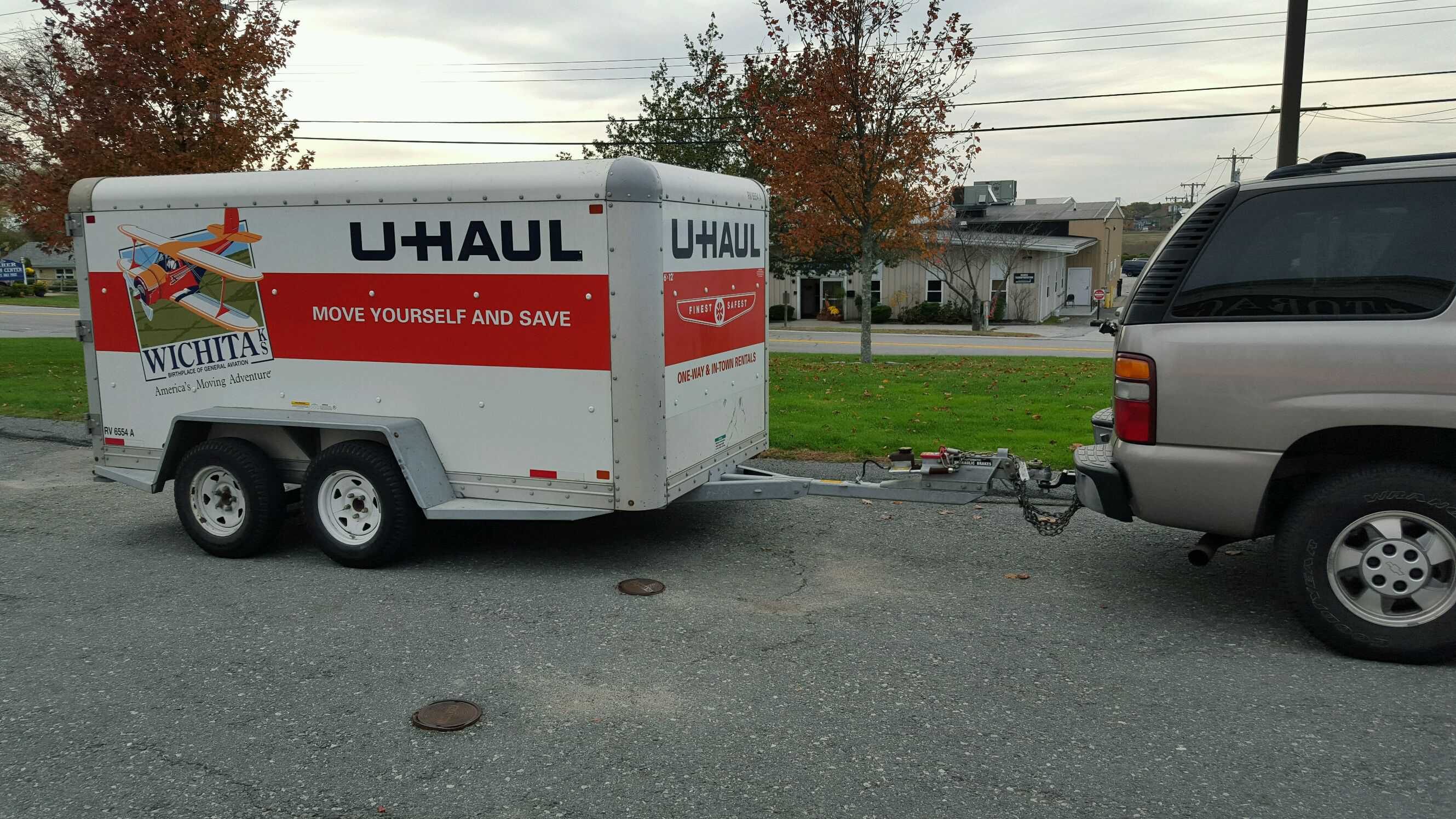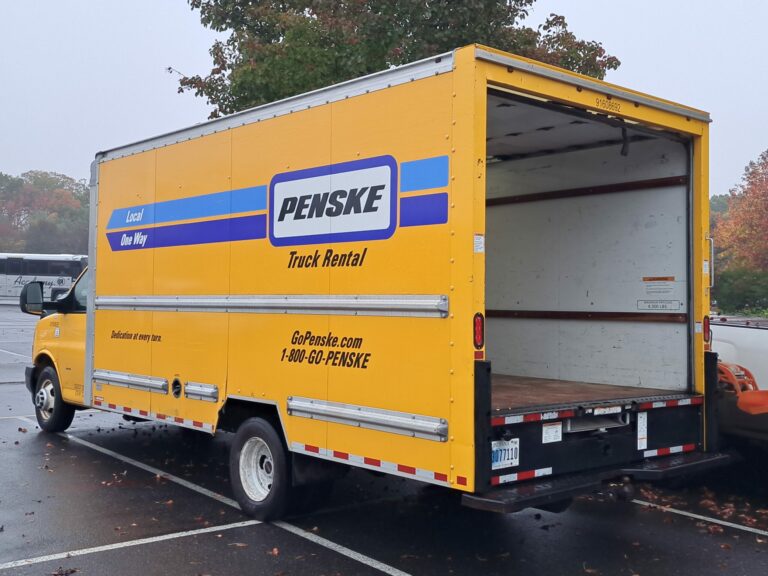How Much Is A U-Haul Truck For Days: A Comprehensive Guide to Extended Rentals
How Much Is A U-Haul Truck For Days: A Comprehensive Guide to Extended Rentals cars.truckstrend.com
Moving, whether across town or across the country, often requires more than just a few hours. For many, a single day simply isn’t enough to pack, load, transport, unload, and return a rental truck. This is where the concept of renting a U-Haul truck for "days" – meaning multiple days or an extended rental period – becomes crucial. Understanding the nuances of how U-Haul prices its trucks for these longer durations is essential for accurate budgeting and a stress-free move.
This comprehensive guide will delve into the factors influencing U-Haul truck rental costs for extended periods, providing a detailed breakdown, practical advice, and a representative pricing table to help you estimate your moving expenses.
How Much Is A U-Haul Truck For Days: A Comprehensive Guide to Extended Rentals
Understanding U-Haul’s Pricing Model: The "Days" Factor
U-Haul’s pricing structure is dynamic and depends heavily on whether you’re making a local move or a one-way long-distance move. The "days" component plays out differently in each scenario.
Local Rentals (Round Trip)
For local moves, where you pick up and return the truck to the same U-Haul location, the pricing typically consists of:
- A fixed daily rate: This is a base charge for each 24-hour period you have the truck.
- A mileage charge: You pay a per-mile rate for every mile driven.

When you rent a U-Haul for "days" in a local context, you are essentially paying the daily rate multiplied by the number of days you need the truck, plus the total mileage. While most local rentals are designed for a 24-hour period, extending this to two, three, or even more days simply adds the daily rate for each additional day.
One-Way Rentals (Long Distance)
One-way rentals are designed for moving long distances, where you pick up the truck at one U-Haul location and return it to a different one. The pricing model here is more complex and typically includes:
- A fixed base rate: This rate is determined by the truck size, your origin, your destination, the time of year, and demand. Crucially, this base rate includes a specific number of allotted days and miles for your journey, as estimated by U-Haul for a reasonable transit time.
- Additional day charges: If you need the truck for more days than the allotted period, you will be charged an additional daily fee for each extra day. This fee can vary but is usually a set amount per day.
- Mileage overage charges: If you exceed the allotted mileage for your one-way trip, you will be charged a per-mile rate for every extra mile.

For one-way rentals, understanding "days" means recognizing that a certain number of days are already factored into your initial quote. Your focus should be on how much it costs if you exceed that allotted time.
Factors Influencing the Cost of a U-Haul Truck for Days

Beyond the basic daily rate and mileage, several other factors significantly impact your total cost when renting a U-Haul for multiple days:
- Truck Size: Smaller trucks (cargo vans, 10-foot trucks) are cheaper per day than larger ones (20-foot, 26-foot trucks).
- Distance/Route: For one-way rentals, the specific origin and destination dramatically affect the base rate and the allotted days/miles. Longer distances generally mean higher base rates and more allotted time.
- Demand and Seasonality: Prices surge during peak moving seasons (late spring to early fall, especially weekends and month-ends) and holidays. Renting during off-peak times can lead to significant savings.
- Location: Prices can vary slightly by region and even by specific U-Haul dealership due to local demand and operating costs.
- Time of Booking: Booking well in advance, especially for one-way rentals, can often secure better rates and ensure truck availability. Last-minute bookings, especially during peak times, can be more expensive.
- Optional Insurance Coverage: U-Haul offers various protection plans (e.g., Safemove, Safemove Plus) that cover damage to the truck, your belongings, or provide medical/life coverage. These add a daily cost. While optional, they are highly recommended for peace of mind.
- Moving Supplies and Equipment: Dollies, furniture pads, tie-downs, and moving boxes are extra costs that can add up.
- Fuel Costs: You are responsible for fueling the truck. Larger trucks consume more fuel, and longer trips mean higher fuel expenses.
- Environmental Fee: A small, non-refundable fee often applies to rentals.
Typical Costs for Multi-Day U-Haul Rentals: The "Days" Breakdown
Let’s break down how the "days" factor impacts your bill for both types of rentals.
For Local Rentals (Extended Duration)
If you plan to use a U-Haul locally for more than 24 hours, you’ll simply incur the daily rate for each additional day. For instance:
- 10-foot truck: ~$19.95 – $29.95/day + mileage ($0.69 – $0.99/mile)
- 26-foot truck: ~$39.95 – $49.95/day + mileage ($0.69 – $0.99/mile)
So, a 10-foot truck for 3 days locally would cost (3 daily rate) + (total mileage per mile rate) + insurance + taxes.
For One-Way Rentals (Exceeding Allotted Days)
This is where "days" really matter for one-way moves. U-Haul’s quote will specify how many days you have for your trip. If you need more time, you’ll pay an additional daily charge. This charge can range from $20 to $75 per day, depending on the truck size, demand, and the specific rental agreement.
For example, if your one-way quote for a 15-foot truck includes 3 days of use, but your move takes 4 days, you’ll be charged the additional day fee for that fourth day on top of your base rate.
Detailed Estimated Price Table for U-Haul Truck Rentals (for Days)
Disclaimer: U-Haul’s pricing is highly dynamic and varies by location, demand, seasonality, and specific route for one-way rentals. The prices below are estimates based on general averages and should be used for budgeting purposes only. Always get a direct quote from U-Haul for accurate pricing. Prices do not include taxes, environmental fees, or optional moving supplies.
| Truck Size / Type | Typical Daily Rate (Local) | Est. Mileage Rate (Local) | Est. Base One-Way Rate (w/ X days/miles included) | Est. Add’l Day Charge (One-Way) | Est. Basic Insurance (per day) | Sample Local Cost (2 Days, 100 Miles) | Sample One-Way Cost (Base + 1 Add’l Day) |
|---|---|---|---|---|---|---|---|
| Cargo Van | $19.95 – $29.95 | $0.69 – $0.99 | $120 – $350 (1-3 days incl.) | $20 – $40 | $15 – $25 | $70 – $110 (2 days daily + 100 miles) | $140 – $400 (Base + Add’l Day + Insurance) |
| 10 ft Truck | $19.95 – $29.95 | $0.69 – $0.99 | $150 – $500 (1-4 days incl.) | $25 – $45 | $20 – $30 | $70 – $110 (2 days daily + 100 miles) | $175 – $575 (Base + Add’l Day + Insurance) |
| 15 ft Truck | $29.95 – $39.95 | $0.69 – $0.99 | $200 – $800 (2-5 days incl.) | $30 – $55 | $25 – $35 | $90 – $130 (2 days daily + 100 miles) | $255 – $900 (Base + Add’l Day + Insurance) |
| 20 ft Truck | $39.95 – $49.95 | $0.69 – $0.99 | $300 – $1200 (3-7 days incl.) | $40 – $65 | $30 – $40 | $110 – $150 (2 days daily + 100 miles) | $370 – $1300 (Base + Add’l Day + Insurance) |
| 26 ft Truck | $39.95 – $49.95 | $0.69 – $0.99 | $400 – $1800 (3-8 days incl.) | $50 – $75 | $35 – $45 | $110 – $150 (2 days daily + 100 miles) | $485 – $1920 (Base + Add’l Day + Insurance) |
Assumptions for Sample Costs:
- Local Cost (2 Days, 100 Miles): (2 Avg. Daily Rate) + (100 miles Avg. Mileage Rate) + Avg. Basic Insurance for 2 days.
- One-Way Cost (Base + 1 Add’l Day): Average of "Est. Base One-Way Rate" + "Est. Add’l Day Charge" + "Est. Basic Insurance" for one additional day.
- Mileage for one-way is assumed to be within the included allotment for the base rate, but additional days are extra.
Key Considerations for Multi-Day U-Haul Rentals
- Plan Your Timeline Realistically: Don’t underestimate the time needed for packing, loading, driving, and unloading. Build in buffer days, especially for long-distance moves, to account for unexpected delays (traffic, weather, rest stops).
- Book Early: Especially for one-way moves or during peak season, booking several weeks or even months in advance can save you money and ensure you get the truck size you need.
- Understand Your Allotted Days (One-Way): When getting a U-Haul quote for a one-way trip, explicitly ask how many days are included in the base rate. This is your critical deadline.
- Inspect the Truck: Before driving off, thoroughly inspect the truck for existing damage and ensure it’s noted on your rental agreement. Take photos or videos.
- Fuel Policy: U-Haul trucks are typically rented with a full tank and must be returned with a full tank to avoid refueling charges (which are often higher than market rates).
- Return Location and Time: For local rentals, confirm the return location and exact time. For one-way, ensure you know the designated return location in your destination city. Late returns can incur additional daily charges.
- Packing and Loading Efficiency: The faster you can load and unload, the less likely you are to need extra days, saving you money.
Tips for Saving Money on Multi-Day U-Haul Rentals
- Be Flexible with Dates: If possible, avoid moving on weekends, holidays, or during the peak summer months. Mid-week, mid-month, and off-season moves are generally cheaper.
- Pack Smartly and Efficiently: Organize your belongings and pack strategically to minimize loading and unloading time. This directly reduces the chances of needing extra days.
- Enlist Help: The more hands you have for loading and unloading, the faster the process, potentially cutting down on the number of rental days needed.
- Consider Insurance Carefully: While recommended, choose the level of coverage that’s right for you. If your personal auto insurance or credit card offers coverage for rental trucks, check their policies carefully, as commercial trucks are often excluded.
- Return on Time (or Early): Avoid late fees by returning the truck within the agreed-upon timeframe. Some U-Haul locations may offer a prorated refund if you return a one-way rental significantly earlier than your allotted time, but this is not guaranteed.
- Fuel Efficiently: Plan your fuel stops. Use gas station finder apps to find competitive prices along your route.
Potential Challenges and Solutions
- Unexpected Delays: Traffic, bad weather, or unforeseen issues can prolong your move.
- Solution: Build in buffer days when planning, especially for one-way moves. If delays occur, communicate immediately with U-Haul. They may be able to adjust your return time or clarify additional charges.
- Damage to the Truck: Accidents happen.
- Solution: Opt for U-Haul’s protection plans. While an added cost, they provide peace of mind and can save you thousands in repair costs.
- Mileage Overages: For local moves, driving more than anticipated. For one-way, taking a longer route or making extra stops.
- Solution: Plan your route meticulously. For local moves, consolidate errands. For one-way, stick to the most direct route.
- Finding an Open Return Location (One-Way): Sometimes the designated return location might be closed upon arrival.
- Solution: Confirm the operating hours of your destination U-Haul center before you arrive. Many locations offer after-hours drop-off, but ensure you follow their specific instructions (e.g., key drop box, specific parking).
Conclusion
Renting a U-Haul truck for "days" is a common and often necessary aspect of moving, particularly for long distances. While the pricing structure can seem intricate, understanding the difference between local and one-way rentals, how daily rates and mileage charges apply, and the impact of various external factors is key to budgeting effectively. By planning meticulously, booking strategically, and being aware of potential additional costs like insurance and extra days, you can navigate your U-Haul rental experience smoothly and ensure your move stays on budget. Always remember to get a direct quote from U-Haul for the most accurate and personalized pricing for your specific needs.
Frequently Asked Questions (FAQ)
Q1: How do I get a quote for a U-Haul truck for multiple days?
A1: You can get a quote directly on the U-Haul website (uhaul.com) or by calling their customer service. You’ll need to input your pick-up location, desired drop-off location (if one-way), pick-up date, and desired truck size. The system will then show you the estimated cost, including the allotted days for one-way moves.
Q2: Can I extend my U-Haul rental if I need more days?
A2: Yes, you can usually extend your rental. For local rentals, you’ll be charged the standard daily rate for each additional day. For one-way rentals, you’ll incur an additional daily charge on top of your original base rate. It’s crucial to contact U-Haul as soon as you know you’ll need an extension to avoid potential penalties or issues with availability for the next renter.
Q3: Is it cheaper to rent a U-Haul for one day or multiple days?
A3: For local rentals, renting for more days will always be more expensive as you’re charged per day plus mileage. For one-way rentals, the base rate includes a set number of days. If you can complete your move within those allotted days, it’s generally the most cost-effective. Exceeding the allotted days will incur additional charges.
Q4: What happens if I return the U-Haul truck late?
A4: Returning a U-Haul truck late, especially without prior notification, can result in additional charges, which may include extra daily fees and potential late return penalties. Always communicate with U-Haul if you anticipate a delay.
Q5: Do I need insurance for my U-Haul rental?
A5: While U-Haul’s protection plans are optional, they are highly recommended. Your personal auto insurance or credit card may not cover rental trucks, especially commercial vehicles. U-Haul’s plans offer coverage for damage to the truck, your belongings, and sometimes medical/life coverage, providing essential peace of mind.
Q6: Are there any hidden fees I should be aware of?
A6: U-Haul is generally transparent with its pricing, but common additional costs include: mileage charges (for local rentals or one-way overages), fuel costs (you must return the truck with the same fuel level), environmental fees, and sales tax. Optional add-ons like insurance, dollies, and moving blankets also add to the total. Always review your quote thoroughly.
Q7: Can I return a one-way U-Haul truck to any location?
A7: No. For one-way rentals, you must return the truck to the specific U-Haul location agreed upon in your rental contract. Returning it to a different location without prior authorization can result in significant additional fees.






